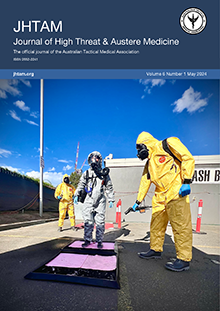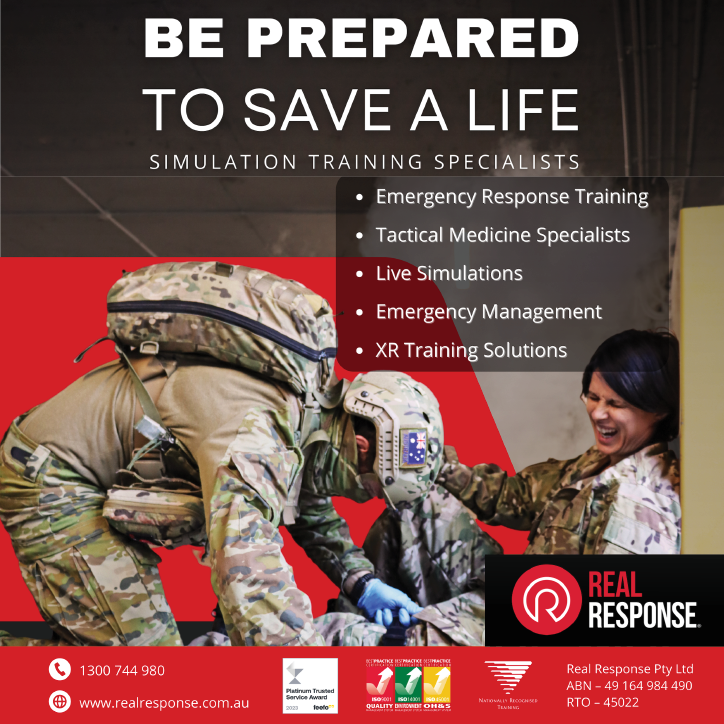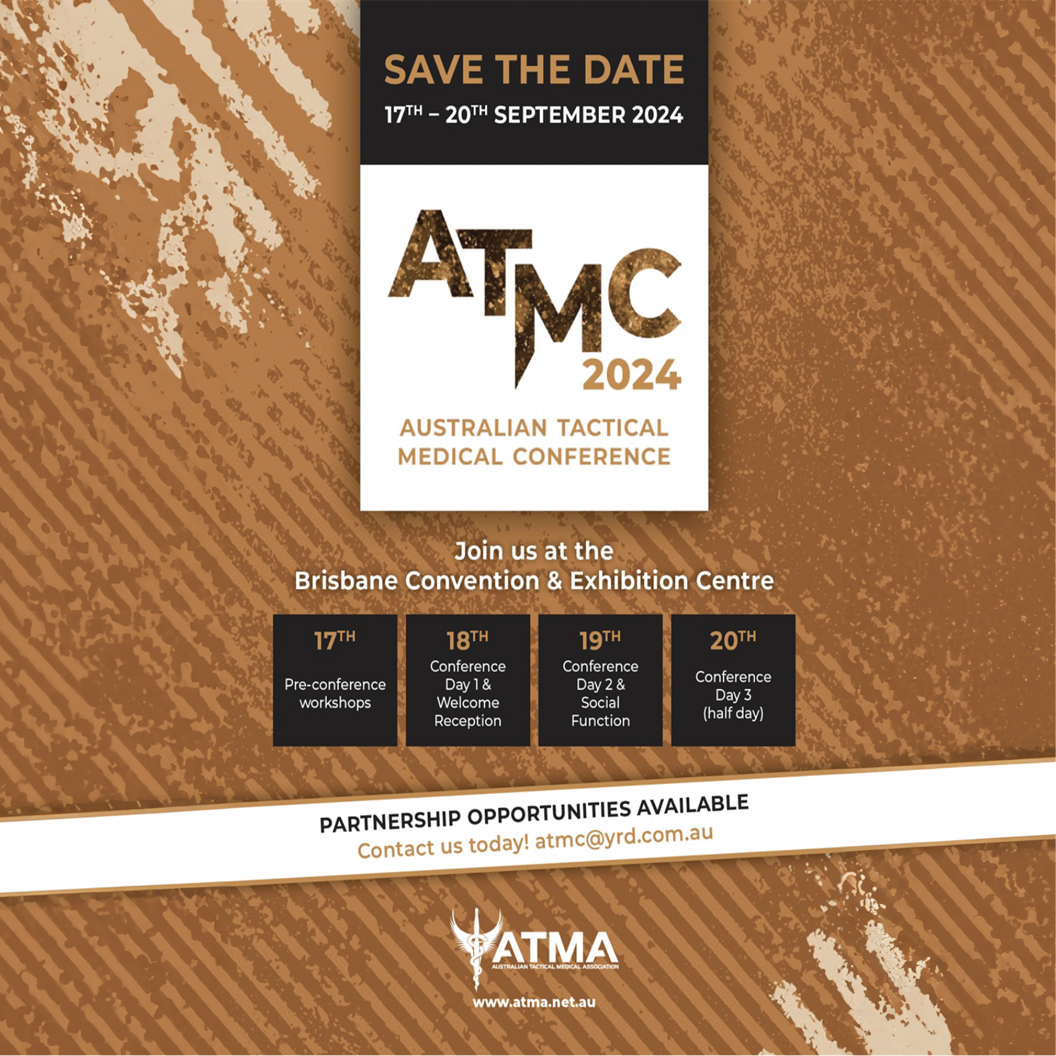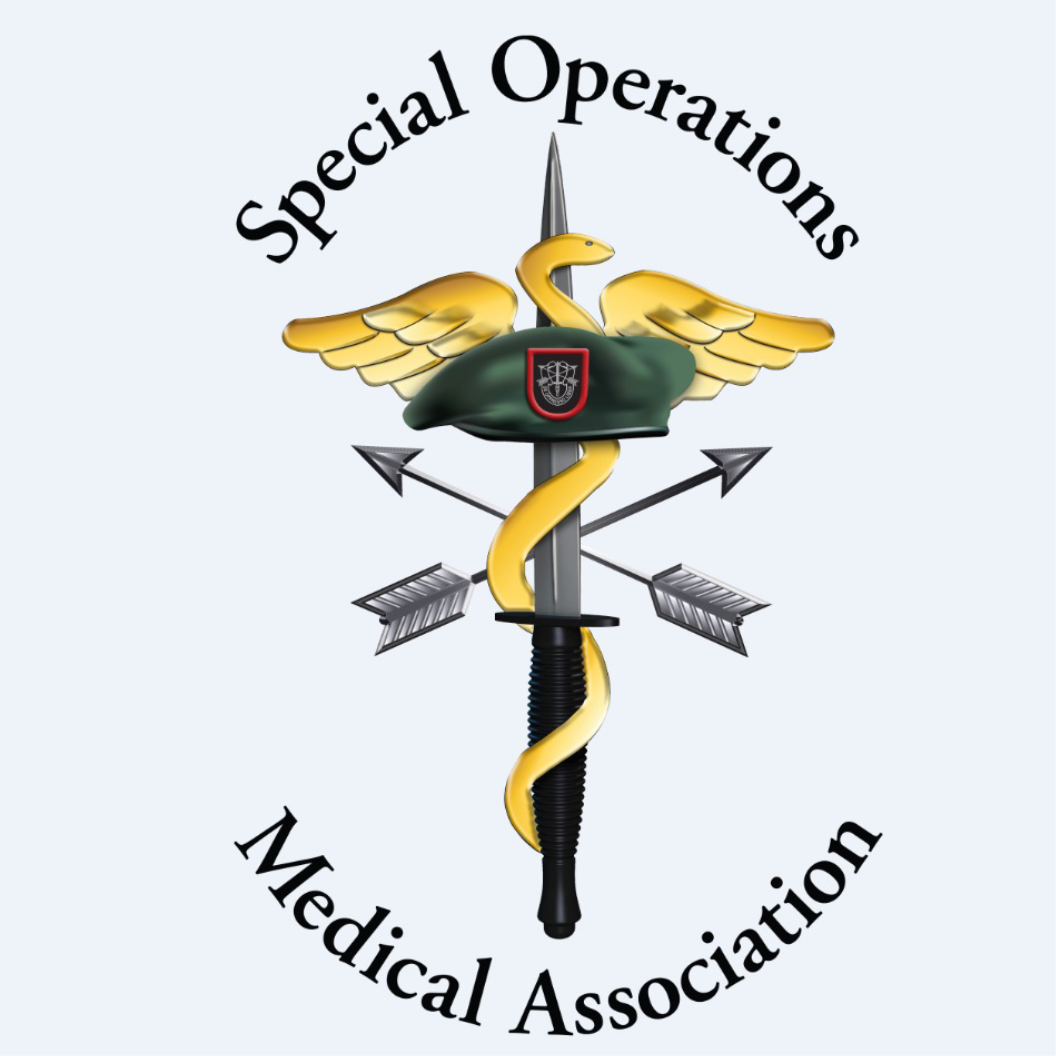
The Journal of High Threat and Austere Medicine
Volume 6 Number 1
Release Date May 2024
ISSN 2652-2241
Guest editorial
Chemical, biological, radiological and nuclear threats: the herculean challenge of modern toxikons
Ricky Schmidt, Jamie Schmidt
Discussion paper
Tactical medicine for blast injury victims in a civilian context
John Moloney, Matthew Richardson
Case report
Safe and effective use of peripheral nerve blocks in the ROLE 2 maritime expeditionary environment
Eric H Twerdahl, Andy G Lum, Brian M Keuski, Andrew C Graf, Gregory H Freitag







